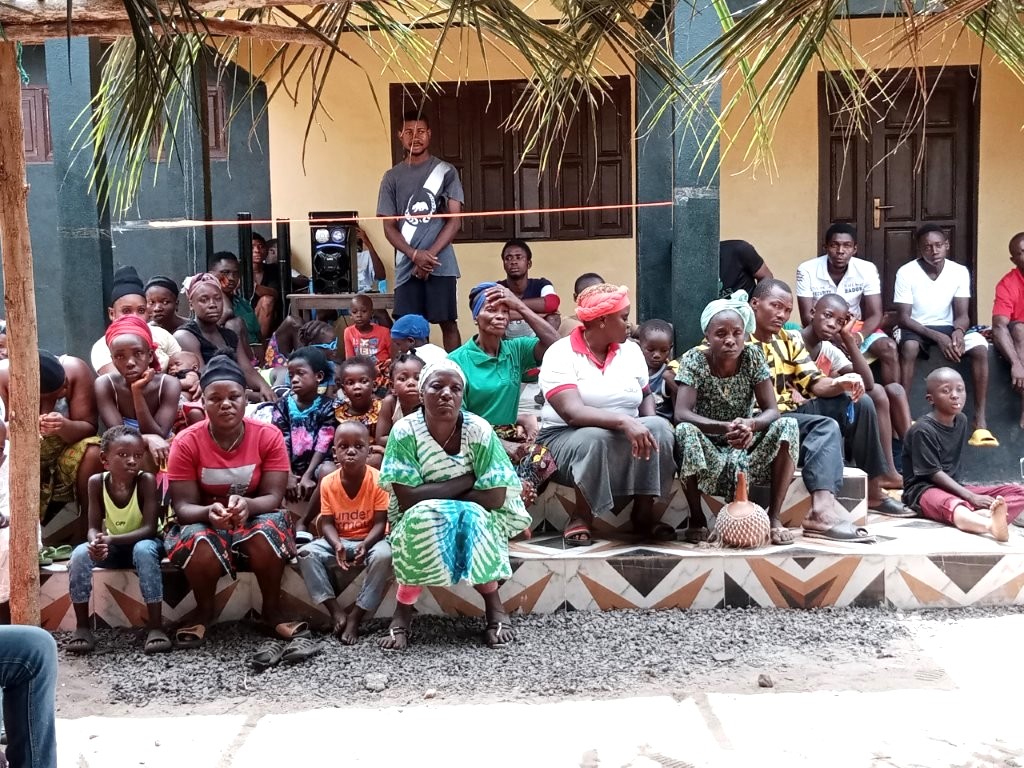The remote community of Sembehun, nestled near Liberia’s Lake Piso, received a transformative gift: a newly constructed, solar-powered eco-guesthouse. This project, spearheaded by the United Nations Development Programme (UNDP) in partnership with Liberia’s Environmental Protection Agency (EPA), represents a beacon of hope for sustainable tourism and economic development in the region. Heralded as a legacy project by local leaders, the guesthouse is expected to bolster the livelihoods of over a thousand residents, empowering them to take ownership of their economic future while simultaneously preserving the precious natural resources surrounding Lake Piso. The official handover ceremony, attended by dignitaries from UNDP, EPA, and the local community, marked a significant milestone in the collaborative effort to build a brighter future for Sembehun.
The genesis of the eco-guesthouse stemmed from a comprehensive feasibility study and extensive community engagement, which sought to identify income-generating activities compatible with the preservation of Lake Piso’s protected areas. The residents of Sembehun, recognizing the potential of eco-tourism, championed the idea of an eco-guesthouse as the cornerstone of their economic development strategy. The Mutamu Women’s Group of Sembehun played a pivotal role by generously donating the land for the guesthouse, demonstrating their deep commitment to the project’s success. This community-driven approach, from project conception to land provision, underscores the importance of local ownership in achieving sustainable development goals.
The construction of the eco-guesthouse, a testament to the power of public-private partnerships, embodies the collaborative spirit between development partners, government agencies, and local communities. UNDP, in its role as a catalyst for sustainable development, partnered with the EPA and local stakeholders, including the Mutamu Women’s Group, to bring this vision to fruition. The project echoes UNDP’s commitment to empowering women and youth, recognizing their crucial role in driving economic and social progress. The investment of over $100,000 in the construction of the solar-powered facility demonstrates a significant commitment to sustainable energy solutions and environmental conservation.
The eco-guesthouse is envisioned not just as a lodging facility but as a comprehensive eco-tourism experience. Visitors will have access to various activities, including tours of the surrounding mangrove forests and trips to nearby beaches, utilizing traditional forms of transport like kehkehs (small motorized canoes) and boats. This multifaceted approach aims to immerse tourists in the natural beauty of the region while generating revenue for the local community. The emphasis on preserving the lake’s ecosystem, including a caution against harmful fishing practices, highlights the project’s commitment to balancing economic development with environmental stewardship.
The impact of the eco-guesthouse extends beyond just economic benefits. It serves as a potent symbol of women’s empowerment, with the Mutamu Women’s Group taking a leading role in the project’s development and future management. This empowers women in Sembehun to be at the forefront of economic activity, showcasing their leadership capabilities and fostering greater confidence within the community. The project also aligns perfectly with UNDP’s broader goals of promoting sustainable management of natural resources, enhancing ecosystem services, strengthening biodiversity conservation, and supporting environmentally friendly, energy-efficient initiatives.
This collaborative endeavor is not merely about constructing a building; it’s about building a future for Sembehun. It signifies a shift towards community-led development, where local residents have the agency to shape their own destinies. The project’s success serves as a model for other communities seeking to achieve sustainable economic growth while preserving their natural heritage. It exemplifies how partnerships, driven by a shared vision and a commitment to local empowerment, can transform communities and create a more sustainable and prosperous future. The eco-guesthouse stands as a testament to the power of collective action, the resilience of the Sembehun community, and the unwavering commitment of partners like UNDP and the EPA to building a better future for all.














